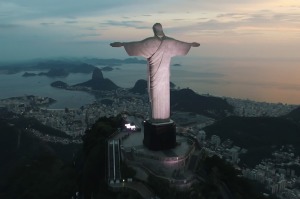E.U. Toughen Sanctions Against Mugabe; U.S. Waiting
The European Union decided Tuesday to toughen sanctions against Zimbabwe President Robert Mugabe to pressure him into sharing power with the opposition as the two rival parties prepared to discuss the possibility of a coalition government.
"We want there to be sanctions because sanctions have an effect," French Foreign Minister Bernard Kouchner said after the decision, according to The Associated Press.
E.U. foreign ministers agreed to add 37 individuals and four companies to their sanctions blacklist of people and companies believed to be financially supporting Mugabe and his Zanu-PF party. In total, there are 172 people on the list, including Mugabe, his wife, and members of his Cabinet. Those on the list are subject to a travel ban, assets freeze as well as a ban on arms sales.
Mugabe and his Zanu-PF party are widely accused of ordering the bloody political violence that ensued the first phase of the presidential election in March. Opposition party Movement for Democratic Change reports more than a hundred of its supporters were killed by Mugabe loyalists and thousands injured.
In June, a week ahead of the second round of election, opposition leader Morgan Tsvangirai pulled out of the race to prevent further harm to his supporters. As a result, Mugabe won the one-man election and claimed that he was voted by the people to a sixth consecutive term as president.
Most international countries, however, do not recognize the election result or Mugabe as the president of Zimbabwe.
"It is impossible to accept the second round of elections in Zimbabwe. With children being tortured, with barbarous acts being committed, with violation of basic democratic rules, we cannot allow this second round to be accepted," French Foreign Minister Kouchner said.
Meanwhile, on Monday, progress was made when the two rival political leaders signed an agreement to end the political violence and begin formal talks. Though Tsvangirai said "it's too early" to make predictions on what will result from the discussions, the opposition leader called it a "collective effort" to put the "best interest" of Zimbabwe first.
The United States said Tuesday that it will continue its close watch of the political developments in Zimbabwe before it imposes any sanctions on Mugabe and his party members.
"We're still looking into it, as we monitor the situation on the ground," U.S. National Security Council spokesman Gordon Johndroe said after the European Union widened its sanctions against Zimbabwe, according to Agence France-Presse.
The White House has been outspoken in its criticism of Mugabe and what it calls a "sham" election. President Bush earlier this month mobilized the Group of Eight leaders at its annual summit to back a U.N. sanction against Mugabe.
Within two weeks, Zimbabwe's rival political parties aim to complete negotiations over the future of the country's government with the help of South African President Thabo Mbeki.
Mugabe, who has ruled Zimbabwe ever since its independence from Britain in 1980, emphasized that outside input is not welcomed in the negotiations.




























